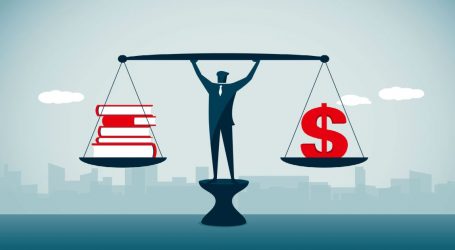In the Sixth District, the canary in the coal mine has a canary of its own
Much of the country is watching the Sixth District congressional runoff to see if the race can give them a clue about the 2018 mid-term elections.
But in Georgia, the canary in the coal mine has a canary of its own. And Republicans are increasingly nervous that the “Jon Ossoff effect” could cost them Judson Hill’s reliably Republican seat in the state Senate.
Democrat Christine Triebsch led the pack with 24 percent of the vote in the April 18 special election to represent District 32, which includes parts of east Cobb and Sandy Springs. Republican Kay Kirkpatrick landed the No. 2 spot with about 21 percent of the ballots.
Conventional wisdom says a low-turnout, May 16 runoff date should help Republicans, since voters are less likely to be swept up in the June 20 contest between Ossoff and Republican Karen Handel. (Because it is a state election, and not a federal one, the runoff is not subject to a Georgia agreement worked out with the U.S. Justice Department to extend the period between the first and second votes.)
But in a Friday email, state Sen. John Kennedy, R-Macon, who chairs the Senate Republican caucus, warned his colleagues not to get complacent and urged them to help out the Kirkpatrick campaign.
“While many think that this is a dark red Republican territory, the data from the election is disturbing considering the number of Democrats that came out and voted, partly because of the John Ossoff effect. However, there is concern in her camp that those same forces will reappear in the May 16 run-off as a prelude and run up to the John Ossoff run-off.
“Simply put, her election may not be subject to the normal campaign forces and concerns. And she cannot rest easy and assume that she will win this election, and we cannot either.”
***
On something of a similar note, from today’s Washington Post:
One of the most influential Cuban Americans in Congress announced that she will retire next year rather than seek reelection in an evolving South Florida district that once helped launch prominent Florida Republicans but is now moving toward Democrats.
Rep. Ileana Ros-Lehtinen (R), the first Hispanic woman and the first Cuban American elected to Congress, will end a 30-year run on Capitol Hill next year as one of her party’s leading moderate voices on social issues. She will leave behind a district that President Trump lost by 20 percentage points, the most Democratic-leaning district held by a Republican based on last year’s presidential contest.
***
Secretary of State Brian Kemp has put the finishing touches on his campaign team for governor. Here’s a look at some of the top fixtures:
— Bob Wickers will be the campaign’s general consultant. He was a campaign strategist for several former governors, including Mike Huckabee, Mitt Romney and Robert Bentley.
— Jeremy Brand is Kemp’s senior strategist, a veteran of more than 100 Georgia campaigns who now represents about one-quarter of the House Republican caucus.
— Finance director Stephanie Jones was U.S. Sen. Johnny Isakson’s financial go-to for 17 years.
— Spokesman Ryan Mahoney is the long-time communications chief for the Georgia GOP and a veteran campaign consultant.
— And Ed Lindsey, Kemp’s legal counsel, is a Dentons partner and former House majority whip.
***
If you’re running for governor, don’t leave home without your plan to bring broadband to rural Georgia. The Rome News-Tribune reports that a coalition of northwest Georgia counties is working on that problem:
Haralson County Commission Chairman Allen Poole is heading the newly formed group. Last month they heard from state Sen. Steve Gooch, R-Dahlonega, co-chairman of the Legislature’s joint Study Committee on High Speed Broadband Access for All Georgians.
The committee’s final report acknowledges that the scattered population and rugged terrain offer little incentive for private companies to extend service. Yet the lack of broadband often deters growth.
“Today’s economy no longer requires (just) basic amenities such as power and sewer, but also demands the ability to transmit data and communications at dependable, economical, high rates of speed,” the report states.





